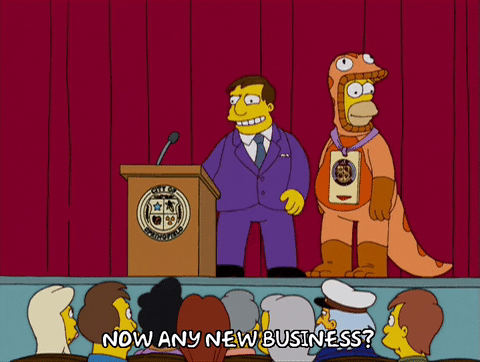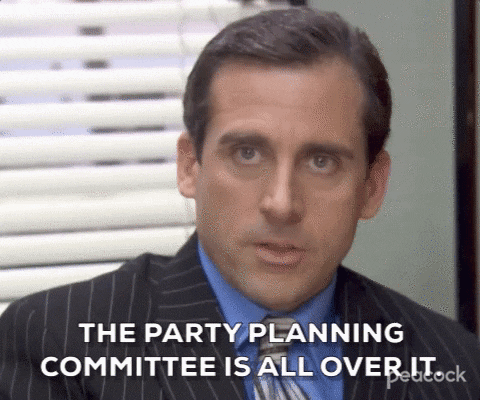
This logo isn't an ad or affiliate link. It's an organization that shares in our mission, and empowered the authors to share their insights in Byte form.
Rumie vets Bytes for compliance with our
Standards.
The organization is responsible for the completeness and reliability of the content.
Learn more
about how Rumie works with partners.
You're attending a meeting that uses parliamentary procedure, but all the rules and terms may seem confusing.
How do I propose an idea or ask a question? There's a motion for that!
A motion is a proposal by a member that the group take action.
A motion can be about anything, from big ideas to small requests or questions. There are a lot of motions you can use, but these 6 are the most common to help you participate in any meeting.
Did you know?
Main Motion
Introduce new business for the group to discuss.

Homer: I move that we purchase a dinosaur suit for each member.
After someone else seconds (expresses support for discussing the motion), the group discusses the pros and cons, then votes.
More than half must vote yes for the group to take action.
Did you know?
Amend
Propose a change to the wording of the main motion.
This can include inserting or striking out words, or both.

Main motion: I move that we purchase a dinosaur suit for each member.
Amendment: I move to amend by striking out "dinosaur" and inserting "Santa".
If the group approves the amendment, the new main motion will read:
I move that we purchase a Santa suit for each member.
The group now discusses and votes on this new proposal.
Did you know?
Commit Or Refer
If the group needs more time or information to make a decision, propose to create a committee to look into it.
Main motion: I move that we organize a retirement party for Paul.
Commit/Refer: I move to refer the motion to a committee of three to be appointed by the chair.
The committee will report back with a new proposal for the group to vote on.

Did you know?
Recess
Propose that the group take a short break. Specify the duration or time to return.
Although this motion isn't debatable, the group can amend the length of the recess.
Bob: I move to recess for five minutes.
Jan: I move to amend by striking out "for five minutes" and replacing it with "until 4:15 pm".
Did you know?
Point Of Information
Ask a question or for additional information about the main motion or meeting in general.

Kate: (stands) Point of Information.
Chair: The member will state their request.
Kate: The motion calls for us to spend a lot of money. Will the Treasurer tell us how much money we have in the bank?
Chair: Mr. Treasurer, what is our bank account balance?
Did you know?
Point Of Order
Point out that a rule was broken and request the chair enforce the rules.

Abby: (stands) Point of order.
Chair: What is your point of order?
Abby: The agenda says the Party Committee report is next, not new business.
Chair: The point of order is well taken. Michael, please present your Party Committee report.
Quiz
Carlos needs to know more before he can vote on a main motion at the meeting. Which of these motions should he use?
Point of Information is how you ask questions or get more information on the current motion. If Carlos thinks more research is needed before the group continues to discuss the motion, he can move to refer the motion to a committee.
Did you know?
Take Action
Introduce parliamentary procedure to your colleagues at the next meeting!

This Byte has been authored by
Kitzzy Avilés
Instructional Designer, Leader and Facilitator
Master's Degree